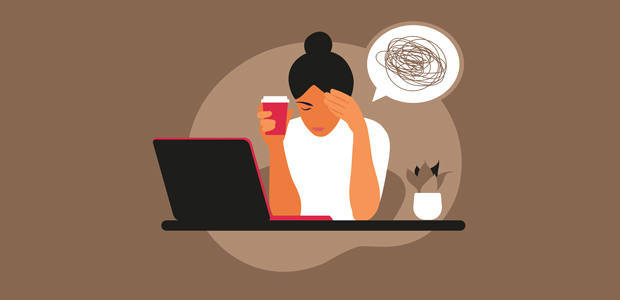
Why Burnout is Your New Best Friend?
Initially, burnout was a term coined for the helping professions like nurses or doctors, but has now been extended to include others. It can affect anyone, from corporate workers to small business owners, celebrities, overworked employees, and stay-at-home parents.
In recent times, there has been a lot of talk around massive burnout in almost every industry. This phase has caused a wave of resignations, termed the “the Great Resignation.” Let’s be honest, we can all remember a time when we’ve had an overwhelming moment at work, a bad boss, or a co-worker that has caused us to second guess our tenure, but was that really burnout? So how can burnout be your best friend? Well, let’s examine what burnout is first.
Burnout is a state of physical or emotional exhaustion, generally caused by constantly feeling swamped. It's a result of excessive and prolonged emotional, physical, and mental stress. Burnout occurs when you're overwhelmed, emotionally drained, and unable to keep up with life's incessant demands. It is often accompanied with a sense of reduced accomplishment and loss of personal identity. Apart from an occasional quarrel with a bestie, you might be thinking this definition doesn’t sound like any of my friends. I hope this is the case. Actually, burnout is, in fact, your bestie, but you’ve got to know the symptoms first.
How do you know if you’re experiencing burnout?
Burnout is common and often confused with other physical or mental health problems. It is recommended you see a health care professional to be diagnosed accurately. However, below are a few symptoms of burnout.
- Have you recently asked yourself is it worth it?
- Do you find yourself more cynical or critical?
- Is it hard to find the energy to do task that were once routine?
- Do you find yourself questioning your “why” regarding a certain task?
- Do you no longer find joy or satisfaction from an activity?
- Do you feel disillusioned?
- Do you self-soothe or escape with food, drugs, or alcohol?
If any of these questions sound familiar, then congratulations; you might be experiencing burnout. Now is not the time to get on the doom and gloom express train but, in fact, celebrate your new best friend, burnout. Think of burnout as the best friend who reminds you to check your car fluids before you drive off or the one who brings your trash can in before you get fined—not convinced yet? Burnout is a sign that something or things are no longer aligned with you in your life.
The fact you are seeing the signs now, before it evolves into a bigger problem is a big deal. Burnout has been attributed to insomnia, alcohol or substance misuse, heart disease, and high blood pressure to name a few. Having a negative mindset about burnout can actually do more harm than good, exacerbating the problem or, worse, speeding up the progression of negative symptoms. Unlike many others who are burnt-out and don’t know it, you now have self-awareness, which is the first step and key to resolving burnout and taking back control of your life.
How to Resolve Burnout
Depending on the activity, there are numerous solutions to resolving burnout. Here are a few answers to help you break up with burnout.
- Take a time out. Whether it is taking some vacation days at work or breaking away for some alone time away from family. Placing yourself in a new environment, away from the situation or relationship in which you experience burnout will help you to think about possible solutions.
- Get Help. Seek a coach, counselor, or therapist to talk through your current situation to help you develop the best possible resolution.
- Create a Mindfulness Practice. Mindfulness is the ability to be fully present in the moment, aware of where you are, and what you’re doing. Additionally, not be overly reactive or overwhelmed by what’s going on around you. It is also about being aware of how you are sensing and feeling, without analysis or judgment. It helps you get out of your head and in tuned with your body. Mindfulness helps reduce stress and against the negative health impacts of stress.
- Get Busy Moving. Getting regular physical activity can help you to deal with stress and increase endorphins. Exercise also helps separate you from the situation so you can focus on other things.
- Create a plan. Creating a daily plan, to-do list, or just listing your priorities helps you get more organised, allowing you to better manage the day’s task. Part of burnout is feeling hopeless and out of controls, so creating a plan for your life or just in the areas you feel burnout can help alleviate undue stress and tension.
Having burnout as your besties isn’t always a bad thing; just don’t plan on keeping them any longer than necessary. Like everything in your life, they serve a season or a reason. Don’t be afraid to lovingly let this best friend go, so you can get back showing up completely in every area of your life.

